Pathways
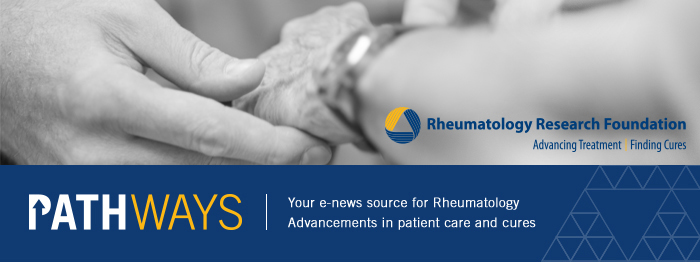
Volume 4 • Issue 10 • October 2015 • Rheumatology Research Foundation
New Discoveries, Future Treatments
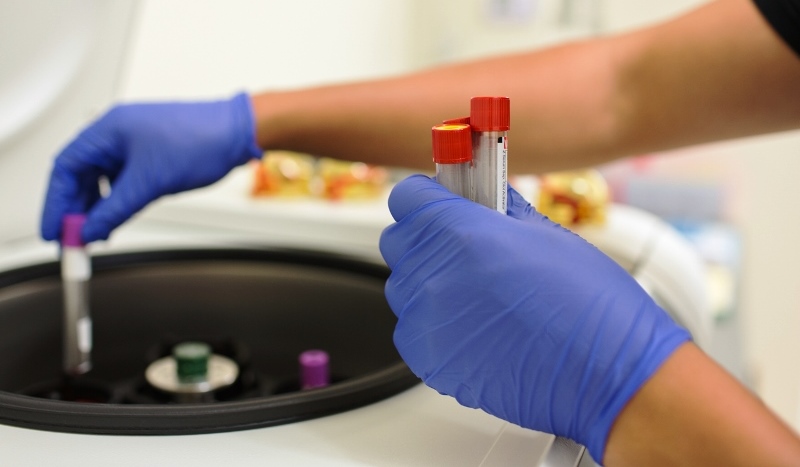 |
Joseph Holoshitz, MD, and his laboratory have made significant advances in understanding a genetic risk factor of rheumatoid arthritis (RA). This knowledge has grown into discoveries that could lead to new RA treatments in just a few years.
“There was a critical point in time when we had a big idea but funding was a concern,” says Dr. Holoshitz, Professor of Internal Medicine and Associate Chief of Rheumatology Research at the University of Michigan. “Without the Foundation’s funding, it is unclear to me if the big project would have been viable.”
In 2007, Dr. Holoshitz received an award from the Foundation for his research focused on RA. He used the funding to study the mechanistic basis of the association between RA and a certain sequence of genes called the “shared epitope.” Because the concept was so new to the scientific community, Dr. Holoshitz believes it likely would not have received funding from any other sponsor.
“The Foundation took a chance at letting us look at these out-of-the-box hypotheses,” says Dr. Holoshitz. “With that early data, we were able to establish the first set of findings that pushed us forward significantly in the years that followed.”
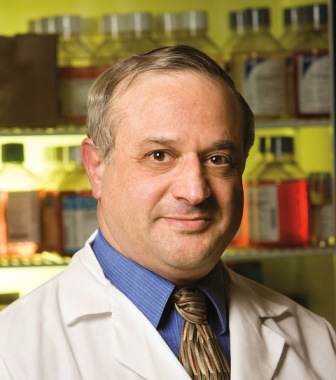 Joseph Holoshitz, MD Joseph Holoshitz, MD |
Dr. Holoshitz’s laboratory eventually identified a new mechanism of action of the shared epitope, which is the single most significant genetic risk factor in RA. Today, Dr. Holoshitz is building on his initial Foundation-funded research. With the help of an Innovative Research Grant, he is studying new chemical compounds that potentially inhibit the shared epitope’s effect on RA patients to determine their effectiveness. He plans to begin clinical trials as early as 2020.
“In my opinion, if there will be solutions in bio-medicine, they will likely come from these out-of-the-box ideas, rather than mainstream concepts that have been looked at for decades without significant progress,” says Dr. Holoshitz. “The Foundation plays a critical role in promoting those novel ideas.”
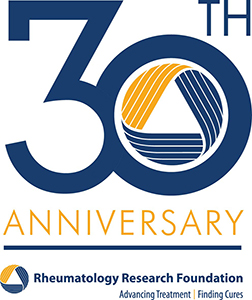 |
This year marks the 30th anniversary of the Rheumatology Research Foundation! To celebrate 30 years of advancing treatment of rheumatic diseases, the Foundation will profile 30 people who have made a significant impact in the world of rheumatology through their work with the Foundation. Please feel free to email us if you would like to contribute a story about how the work of the Foundation has directly impacted your life, or if you would love an opportunity to share your story or brag about your rheumatologist. We would love to hear from you!
30 Over 30: Leslie Crofford, MD
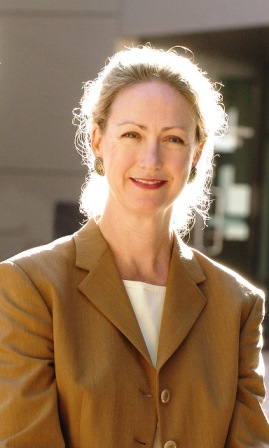
Leslie Crofford, MD |
Throughout her career, Leslie Crofford, MD, has developed an understanding of rheumatology from several perspectives: as a clinical rheumatologist caring for patients, an educator training the next generation of rheumatology experts, and a researcher working to advance treatments and find cures. Through each of these roles, she has witnessed the Rheumatology Research Foundation’s growth and its impact on improving care and treatments for people with rheumatic diseases.
Dr. Crofford is currently a professor of medicine at Vanderbilt University Medical Center and has received several Foundation awards herself. With the Foundation’s support, she has published more than 150 journal articles and book chapters based on her research in understanding inflammation, pain and stress as mediators of rheumatic disease. She explains how the Foundation is vital to the search for a cure. “The Foundation is a phenomenal funding source and is one of the few ways that senior scientists can receive funding to generate preliminary data that can lead to federal funding.”
Dr. Crofford, however, is most proud of the Foundation’s support for training and education. As an educator, she understands how crucial funding for such programs is in recruiting and training the next generation of rheumatology experts. “The Foundation holds a critical position in the maintenance of the academic workforce,” she says. “And these rheumatologists hold a critical role in the field of rheumatology as a whole.”
With a deep appreciation for the Foundation’s work, Dr. Crofford has dedicated her time and financial support to helping the Foundation grow over its 30 year existence. In addition to being a generous donor over the years and serving on several committees, she also served as the Foundation’s first female president in 2007.
“The Foundation’s 30th anniversary is a time of great celebration,” says Dr. Crofford. “We’ve watched it grow from a very small organization giving limited funds to the largest private funder of rheumatology research and education in the country. It is immensely exciting to have participated in that development, and I can only look forward to a wonderful future.”